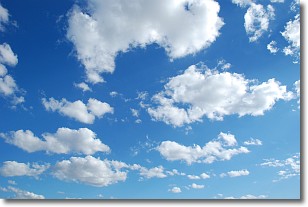Weather Alert in Colorado
Flash Flood Warning issued August 23 at 4:35PM MDT until August 23 at 5:45PM MDT by NWS Grand Junction CO
AREAS AFFECTED: Mesa, CO
DESCRIPTION: FFWGJT The National Weather Service in Grand Junction has extended the * Flash Flood Warning for... The Turner Gulch Burn Scar in... Southwestern Mesa County in west central Colorado... * Until 545 PM MDT. * At 435 PM MDT, Doppler radar indicated thunderstorms producing heavy rain over and near the Turner Gulch Burn Scar. Between 0.3 and 085 inches of rain have fallen. The expected rainfall rate is 0.7 to 1.5 inches in 1 hour. Flash flooding is ongoing or expected to begin shortly. Excessive rainfall over the burn scar will result in debris flow moving through the basins near the western end of the Turner Gulch burn scar. The debris flow can consist of rock, mud, vegetation and other loose materials. HAZARD...Life threatening flash flooding. Thunderstorms producing flash flooding in and around the Turner Gulch Burn Scar. SOURCE...Radar. IMPACT...Life threatening flash flooding of areas in and around the Turner Gulch Burn Scar. * Some locations that will experience flash flooding include... mainly rural areas of Southwestern Mesa County This includes the following streams and drainages... North Fork West Creek, Dolores River, West Creek, Ute Creek, North Lobe Creek, Gill Creek, Maverick Canyon, Cow Creek and Calamity Creek.
INSTRUCTION: This is a life threatening situation. Heavy rainfall will cause extensive and severe flash flooding of creeks...streams...and ditches in the Turner Gulch Burn Scar. Severe debris flows can also be anticipated across roads. Roads and driveways may be washed away in places. If you encounter flood waters...climb to safety.
Want more detail? Get the Complete 7 Day and Night Detailed Forecast!
Current U.S. National Radar--Current
The Current National Weather Radar is shown below with a UTC Time (subtract 5 hours from UTC to get Eastern Time).

National Weather Forecast--Current
The Current National Weather Forecast and National Weather Map are shown below.

National Weather Forecast for Tomorrow
Tomorrow National Weather Forecast and Tomorrow National Weather Map are show below.

North America Water Vapor (Moisture)
This map shows recent moisture content over North America. Bright and colored areas show high moisture (ie, clouds); brown indicates very little moisture present; black indicates no moisture.

Weather Topic: What is Condensation?
Home - Education - Precipitation - Condensation
 Next Topic: Contrails
Next Topic: Contrails
Condensation is the process which creates clouds, and therefore
it is a crucial process in the water cycle.
Condensation is the change of matter from a state of gas into a state of liquid,
and it happens because water molecules release heat into the atmosphere and
become organized into a more closely packed structure, what we might see as
water droplets.
Water is always present in the air around us as a vapor, but it's too small for
us to see. When water undergoes the process of condensation it becomes organized
into visible water droplets. You've probably seen condensation happen before on the
surface of a cold drink!
Next Topic: Contrails
Weather Topic: What are Cumulonimbus Clouds?
Home - Education - Cloud Types - Cumulonimbus Clouds
 Next Topic: Cumulus Clouds
Next Topic: Cumulus Clouds
The final form taken by a growing cumulus cloud is the
cumulonimbus cloud, which is very tall and dense.
The tower of a cumulonimbus cloud can soar 23 km into the atmosphere, although
most commonly they stop growing at an altitude of 6 km.
Even small cumulonimbus clouds appear very large in comparison to other cloud types.
They can signal the approach of stormy weather, such as thunderstorms or blizzards.
Next Topic: Cumulus Clouds
Current conditions powered by WeatherAPI.com




